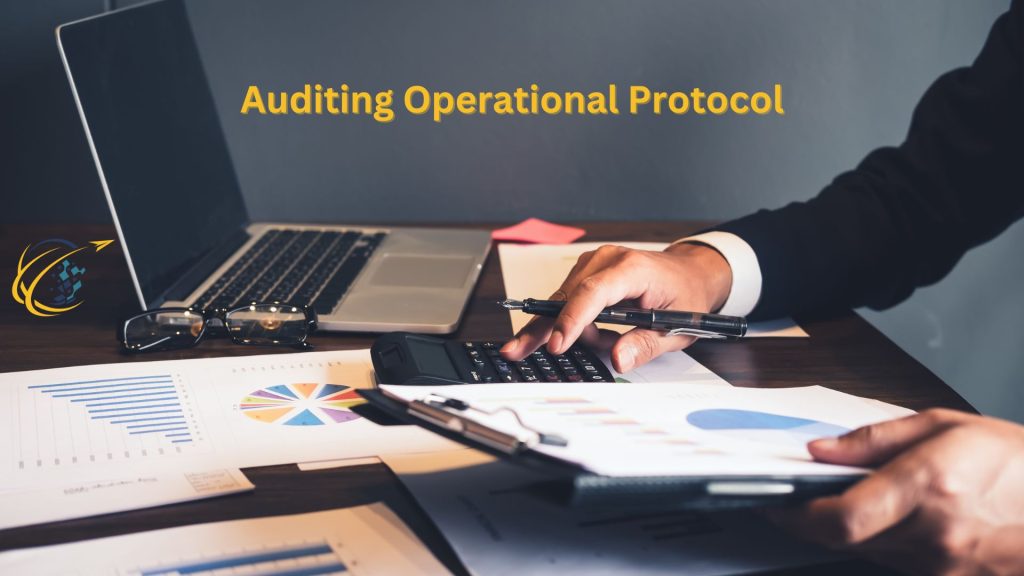Auditing operational protocol is a vital process that helps businesses evaluate the effectiveness, efficiency, and compliance of their operational procedures. By conducting a thorough audit, companies can identify areas for improvement, ensure that all departments follow established protocols, and optimize their overall workflow. Whether a company is small or large, auditing operational protocol plays a crucial role in maintaining consistent standards and ensuring sustainable growth.
Understanding how to conduct an audit of operational protocol is essential for business leaders aiming to enhance productivity. Regular audits not only reveal inefficiencies but also help prevent non-compliance with industry regulations. When businesses audit operational protocol, they proactively address potential risks before they escalate into larger issues. Moreover, the audit process fosters accountability across departments, ensuring that teams adhere to best practices while meeting the organization’s objectives.
The Importance of Auditing Operational Protocol
Auditing operational protocol is essential for identifying gaps in processes and ensuring that every part of the organization operates smoothly. By evaluating the protocols in place, businesses can detect any inefficiencies or bottlenecks hindering their operations. These inefficiencies could manifest as delayed production, poor communication, or inconsistent service delivery. Through audits, businesses can refine their processes and improve overall performance.
Additionally, auditing operational protocol enhances compliance with industry standards and regulations. Many industries face stringent legal and regulatory requirements, and failing to comply can result in significant financial penalties. Regular audits ensure that businesses remain in line with these requirements and avoid costly legal repercussions. Furthermore, audits provide transparency, helping management understand whether the organization meets internal and external standards.
Another key benefit of auditing operational protocol is its impact on risk management. Risk is an inevitable part of business operations, but through regular audits, companies can better understand and mitigate potential risks. Identifying procedural vulnerabilities allows businesses to implement preventative measures and develop contingency plans. This proactive approach not only protects the organization from financial loss but also strengthens its overall resilience.
Steps in Auditing Operational Protocol
The process of auditing operational protocol begins with clear planning and goal-setting. Organizations should first define the scope of the audit by identifying which areas of their operations need evaluation. Audits can focus on specific departments, processes, or even the entire organization. Setting clear goals for the audit helps ensure that the process remains focused and provides actionable insights.
Once the audit’s scope is defined, the next step involves gathering and reviewing relevant documentation. This includes reviewing standard operating procedures (SOPs), compliance manuals, and internal reports. By comparing these documents to actual operational practices, auditors can identify discrepancies or deviations from established protocols. Additionally, reviewing key performance indicators (KPIs) provides insights into whether current processes are achieving the desired results.
Conducting interviews with employees is another critical step in auditing operational protocol. Speaking directly with staff members who execute these processes daily provides a deeper understanding of how operations run in practice. Employees can highlight challenges, provide feedback, and share ideas for improvement. Their input is invaluable in identifying inefficiencies that may not be immediately visible through documentation alone.
After gathering all relevant data, the audit team analyzes the information to pinpoint areas that require attention. This step involves comparing documented procedures with actual practices and assessing whether current operations align with the organization’s goals. In cases where discrepancies or inefficiencies are found, auditors recommend solutions or adjustments to bring processes back into alignment.
Finally, after the audit is complete, the organization implements the recommended changes. Continuous monitoring ensures that the new protocols are effectively integrated into daily operations. Organizations should also plan regular follow-up audits to maintain ongoing compliance and efficiency.
Leveraging Technology in Operational Audits
Technology plays a crucial role in enhancing the auditing of operational protocols. With the rise of digital tools, businesses can now automate parts of their auditing processes, saving time and improving accuracy. For example, software solutions that track compliance and monitor KPIs can help streamline data collection during an audit. These tools provide real-time insights into operational performance and highlight areas that may require improvement.
Moreover, data analytics plays an integral role in auditing operational protocol. By leveraging analytics platforms, businesses can gather large volumes of data on their workflows and processes. These analytics tools provide detailed reports and visualizations, making it easier for auditors to assess performance and compliance. Predictive analytics can also identify future risks, enabling businesses to take corrective action before issues arise.
Cloud-based systems are another important technology in operational audits. These systems centralize documentation and make it accessible from anywhere, allowing auditors to review materials more efficiently. They also facilitate collaboration, as different departments can share data and insights in real-time. The ability to access and analyze data remotely is especially valuable for businesses with multiple locations or remote teams.
The Impact of Auditing on Business Performance
Auditing operational protocol has a direct impact on business performance. When businesses regularly evaluate their processes, they ensure that resources are used efficiently. This leads to cost savings, as inefficiencies such as wasted time, materials, or labor are minimized. Moreover, refining protocols through audits can reduce downtime, boost productivity, and improve the overall quality of products or services.
Employee performance is another area that benefits from auditing operational protocol. Clear and consistent protocols enable employees to perform their tasks more effectively. When staff members follow well-established procedures, they are more likely to achieve higher levels of accuracy and efficiency. In turn, this can enhance job satisfaction, as employees feel more confident in their roles and less frustrated by unclear or inefficient processes.
Additionally, auditing operational protocol can enhance customer satisfaction. When businesses operate efficiently and maintain high standards of service, customers receive a more consistent experience. Whether it’s delivering products on time, ensuring quality control, or providing excellent customer support, streamlined operations have a positive impact on customer loyalty and business reputation.
Auditing operational protocol is essential for businesses seeking to optimize performance, ensure compliance, and manage risks. By regularly evaluating internal processes and workflows, businesses can identify inefficiencies, improve productivity, and maintain high standards. The audit process also plays a critical role in preventing legal or financial risks related to non-compliance with industry regulations. With the use of technology, such as data analytics and cloud-based systems, businesses can further enhance their auditing capabilities. Ultimately, businesses that prioritize auditing operational protocol are better positioned to achieve long-term success in a competitive marketplace.


